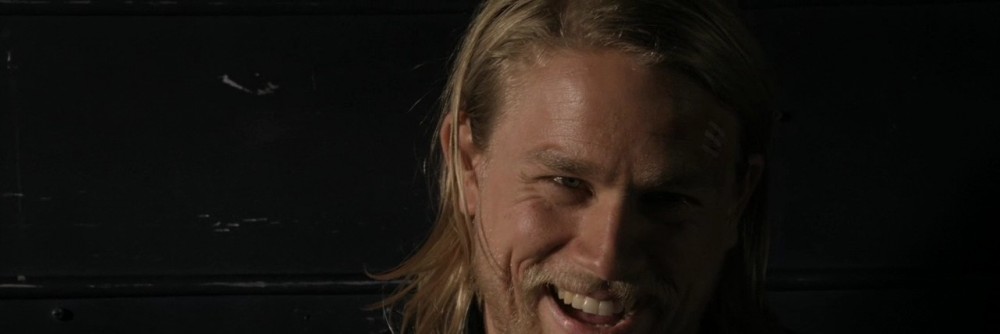Order UNACCOMPANIED MINORS here
Category Archives: Book Review
Book Review : David James Keaton – Fish Bites Cop! (2013)
Book Review : Archer Mayor – Three Can Keep A Secret (2013)
Order THREE CAN KEEP A SECRET here
Joe Gunther is the head of the Vermont Bureau of Investigation, better known as VBI. He’s been a cop for long, he’s been on the beat before and now his outfit is often called for assistance by the local police forces to help solve difficult crimes. Hurricane Irene left a series of strange occurrences the trail of her desruction: a retired high-profile politician turns up dead, a state mental facility patient with a creepy legacy has disappeared and maybe the strangest of them all, an old grave is found filled with rocks and dirt. What has hurricane Irene brought to the surface exactly? Are the three cases connected? It’s the kind of problem the VBI specializes in solving.
A long-standing mystery series is an interesting problem and I thought THREE CAN KEEP A SECRET was a good example, without even having to read the other Joe Gunther books. Writing one novel a year featuring the same characters, you’re going to lose some intensity. I’m sure that if I dig into Archer Mayor‘s books, I’m going to find some volumes that have great emotional peaks, but they’re going to be within the first half. Maybe even within the first five titles. What makes a series thrive for so long is its tremendous sense of structure. That’s why I felt right at home when I read THREE CAN KEEP A SECRET. I knew what direction it was going in, the cases were well defined, it was like watching a rerun of a CSI episode. Archer Mayor has developed a sense of structure that’s both accessible and involving for his Joe Gunther novels.
Of course, you can’t jump into a series at the end and not expect a little disorientation. There are a lot of characters, they all know each other and even if Archer Mayor take the time to bring you up to speed a little, it’s still difficult to point out to know the who’s who. I tried not to get attached to the characters though, since it was not the point of the exercise here and thankfully, Archer Mayor went easy on the exposition. Truth is, the cases were original and fun even if the treatment was a little impersonal for an outsider. So, THREE CAN KEEP A SECRET is a little bit of a fast-food mysery, but it fell into the hands of the biggest McDonald’s fan north of the border. I don’t think it’s necessarily a bad term for literature. I just don’t mean it as an insult. I just think of fast-food books as a pre-processed product, rather than a work of art. Both have their place.
The life of a book reviewer is exciting like that. When major publishers send you books, it’s like spinning the wheel of fortune: you never know what’s going to happen. Sometimes it’s quite painful, but sometimes it’s a pleasant surprise like Archer Mayor‘s THREE CAN KEEP A SECRET. I would not know what to tell you about the Joe Gunther series in general, since I’ve kind of blanked out the series aspect and read it purely for the mystery. I can tell you Archer Mayor‘s a fun author, though. I’m still not too sure why I liked THREE CAN KEEP A SECRET as much as I liked it, but it was a lot of fun to read. It was fun enough for me to be intrigued about the older Joe Gunther novels. If you like your police procedurals original and unpretentious, you should give this series a shot.
Book Review : Richard Thomas – Staring Into The Abyss (2013)
Order STARING INTO THE ABYSS here
(also reviewed)
Order HERNIATED ROOTS here
Order TRANSUBSTANTIATE here
Book Review : American Nightmare (2014)
Book Review : Joe Clifford – Lamentation (2014)
(also reviewed)
Order CHOICE CUTS here
Order WAKE THE UNDERTAKER here
Book Review : Joe Clifford – Wake the Undertaker (2013)
Book Review : Tom Pitts – Piggyback (2012)
Book Review : Richard Stark – The Jugger (1965)
(also reviewed)
Order THE HUNTER here
Order THE MAN WITH THE GETAWAY FACE here
Order THE OUTFIT here
Order THE MOURNER here
Order THE SCORE here
* I don’t have the quote for that, but several Parker fans told me this.
** As sentimental and loopy as Parker can get. He’s not a very showy guy.
Book Review : Joe R. Lansdale – Cold in July (1989)
(also reviewed)
Order SAVAGE SEASON here
Order MUCHO MOJO here
Order THE BOTTOMS here
I’m king of gushing here. It’s no secret I’m a Joe R. Lansdale fan, though. I’d say his work, Tom Piccirilli‘s and Dennis Lehane‘s had the most influence on me. COLD IN JULY is one of his most complex, unpredictable and ultimately satisfying novels, so yeah, I’m kind of gushing. Plus, I’ve read this baby in July! If you’re considering waiting until July 2015 to do so, please don’t. I know there is a specific month in the title, but it’s not a novel that should be stored for eleven months. I know I’ve given my BADASS stamp of approval to another novel last week, but I’m giving it again for different reasons: COLD IN JULY might not be a transcendent emotional experience, but it’s a masterful novel nonetheless. It’s an expert blend of genres and a wild and original story. It’s Joe R. Lansdale at his absolute best.
BADASS










